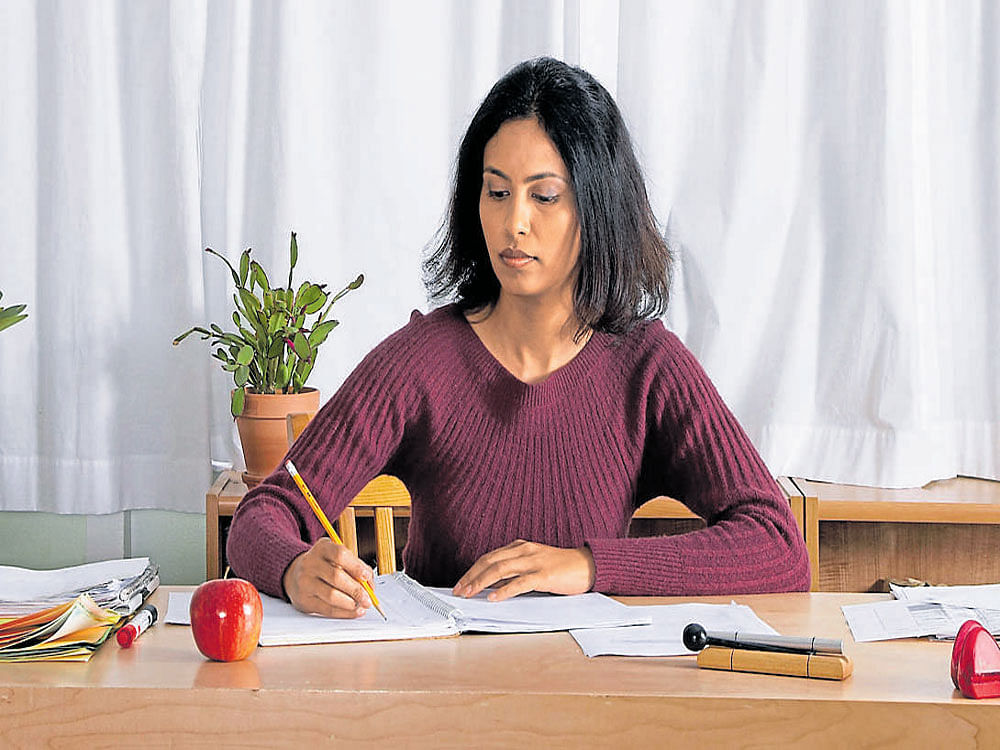
The means of evaluation of students in our country is based on their performances in exams. A question paper is the basic tool used in an examination.
Sometimes, question papers are under debate for their levels of toughness and lengthy content. The works of question paper setting and evaluation become more important, particularly when students come from different educational backgrounds and boards.
Looking at it objectively
Tests are conducted to asses students’ knowledge in a subject, grading them, to give admission to higher education, placements, scholarships etc. Hence, a question paper must be set in a way that can measure the change in the level of students’ knowledge in a particular subject.
Therefore, a good amount of care and caution is necessary for setting question papers. The types of question papers differ with the objective of the examination.
For example, in competitive examinations, the question paper is set with the objective of screening the candidates and choosing the right ones for a particular course or job. But in an university examination, the objective is to assess the knowledge acquired by the students during the course.
It may sound hard to believe, but every question paper does have certain common objectives, no matter what their purposes are. Keeping this in mind, here are some perspectives that every teacher should look at while setting a paper for examinations:
* Objective and scope of the examination
* Design of the paper and the relative weightage of the concepts
* Selection of questions
* Analysis of questions
* Evaluation aspects and the criteria for moderation
Most paper setters and evaluators prefer difficult questions and strict evaluation to make the process more stringent. The idea is also to identify intelligent candidates and curb copying, but what they fail to realise is that such difficult aspects might have a negative effect on students.
There have been instances when due to public outcry, the governing bodies of these examinations have created committees to suggest means and modes for providing relief to affected students. Thus, it is better to take pre-examination precautions in order to avoid post-examination chaos.
One of the major things one could do to improve the situation is to select paper setters and evaluators who have unquestionable integrity, a vast educational experience in the respective subjects and are genuinely, moderately authoritarian and think rationally.
Teachers, while setting question papers, should be careful about many important issues and not simply pick and choose some questions from the matters taught in the syllabus prescribed for the course.
Papers should be drawn from two to three paper setters and then a committee constituting educationists with the aforementioned qualities should decide on the final form of the question paper.
Guidelines for paper setters and line-wise evaluation criteria should be provided to evaluators with centralised paper checking with one question or part of it per evaluator. The question paper setter and evaluator should fulfill their assignment with great honesty, dedication, integrity and seriousness.
Before setting a question paper, every paper setter should put himself or herself in the shoes of the examinee and then frame the type, level and duration of the questions.
The toughness level of question paper should be such that 50% of it can be attempted by even an average student, 20% by good students and the rest 30% by intelligent students. Further, strict rules should be framed for evaluation of question papers at every level and there should be counter checks for question paper setting and evaluation.
In any case, the question paper setters should not challenge the existence of the examinee; rather they should motivate and help the examinee to express himself so that students do not lose faith in examination or education system in general.
While we can sit and discuss this serious issue of question paper setting today, one must also remember that the population of our country is huge. When hundreds of thousands of kids are involved in education, it becomes quite difficult to generalise such concerns and implement suggested solutions. One rule doesn’t apply to everyone here, but there are certain common norms that can help teachers and evaluators:
* The students are tested at the end of a semester or academic year to find out
the outcome of their learning in the classroom. A good exam paper should be prepared to test them in all the areas of learning.
* The students are tested for their skills acquired in the classroom after the end of a semester or academic year. This test should be comprehensive and they should be tested in all the topics they learned during the semester or year.
* Teachers should take adequate care and caution in setting a question paper and it is acquired through practice and experience over the years through trial and error method.
(The author is professor, Christ University, Bengaluru)
Deccan Herald is on WhatsApp Channels| Join now for Breaking News & Editor's Picks